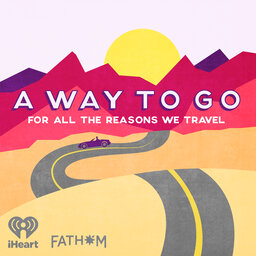Running from the Law, with Tyler Wetherall
When we hear about people being "bit by the travel bug," we think of them as having an appreciation of new places — not necessarily a compulsion to get up and go. The two go hand in hand for Tyler Wetherall, a travel writer who, as a child, moved 13 times across five countries and used a name that was different than the one on her passport. When she was nine years old, she learned why: Her father was a fugitive and the family was running from the FBI. Find out more about this episode at Fathomaway.com.
Learn more about your ad-choices at https://www.iheartpodcastnetwork.com
 A Way To Go
A Way To Go


